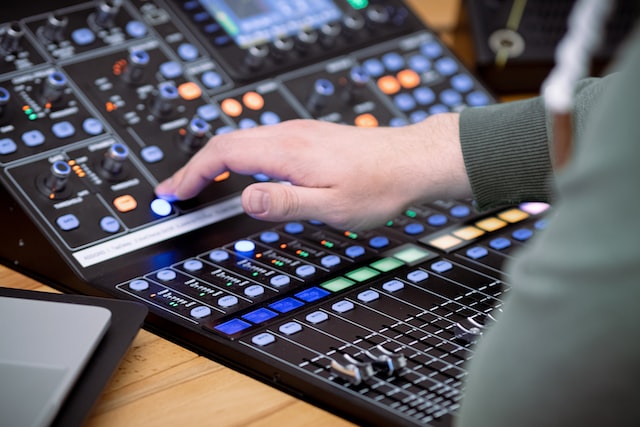Whether you’re new to streaming or an experienced streamer, a quality audio mixer can make all the difference. The right one will ensure that your viewers enjoy a great experience with each and every stream you host.
A quality mixer can also be a lifesaver if you’re going to be traveling for your streams. You can bring it along with you and have your audio setup up and running before you’ve even arrived at your destination.
Streaming Microphones
If you’re streaming for a living or just for fun, you need to get the right microphone. There are many options, so it can take much work to know which is best for you.
Streaming microphones are designed to capture sound and record it to a computer or other audio device for editing or broadcast. There are different types of microphones based on their pickup (or “polar”) pattern and connection method, which can all impact the overall quality of your output.
A classic cardioid microphone, for instance, isolates unwanted ambient sounds, such as the clatter of a keyboard, from the front of the mic while allowing the rest of your voice to be heard clearly. Several subtypes of this polar pattern, such as super-cardioid and hyper-cardioid, have narrower sound sensibility angles and a greater ability to reject background noise.
However, these microphones tend to be more sensitive to sounds on the sides of their bodies and from the rear of the mic, so you need to position them carefully to avoid picking up unwanted sounds or reflections in the room. Consider a standalone microphone if you have to move around a lot for your live streams.
Another popular choice for streamers is a dynamic microphone. Podcasters and music producers often use these because they can capture more high-frequency sounds, making them useful for capturing sound in noisy environments.
Microphones can also be supplemented with accessories that help improve your audio even further. These can include pop filters, which prevent airflow from causing popping sounds in the microphone, and attenuation pads, which reduce the volume of vocals when they are too loud.
In addition, a professional audio mixer can provide you with an array of audio settings and controls, letting you get the most out of your streaming microphone and the software it runs on. These tools can make all the difference to the quality of your audio and can even boost your audience numbers.
Audio Interfaces
If you’re looking for the right audio mixer for streaming needs, you should know a few things before purchasing one. These include:
Another important consideration when buying an audio interface is the quality of its mic preamps. The better the preamps, the more accurate and clean your recordings will sound. It would help if you also looked for an audio interface that has a high dynamic range, which is the difference between the loudest and quietest signal.
This is a good thing to have when streaming live, as you want to hear everything clearly, including your audience’s reaction. It’s also important to have a low noise threshold, which prevents unwanted noise from leaking into your recording.
Your audio interface should have multiple inputs and outputs, a great feature for streamers who need to record various instruments, vocals, or other audio. A larger number of inputs can allow you to record multiple tracks at once, assuming your computer can handle it.
These are all very solid devices that offer a wide array of features, great sound quality, and excellent software bundles. They are costly, but they will do the job for many people.
If you’re a beginner, you may be fine with the quality of your microphones, but if you want to upgrade to higher-quality microphones in the future, it might be worth getting an audio interface with XLR mic inputs.
Tape-In
If you’re a streamer, it’s important to have a quality audio mixer to get the best sound for your streaming needs. A mixer allows you to mix, balance, and combine multiple audio sources into one signal that can be sent to a loudspeaker or recorded on a tape recorder.
The right audio mixer can help you achieve consistent volume levels across your inputs. Some mixers offer multichannel EQ to help you achieve the sound you want for your live streams.
You can choose between digital and analog mixers, depending on your preference. Analog mixers are more affordable and allow you to customize how they sound. However, digital mixers often have more functionality than their analog counterparts.
Another advantage of digital mixers is their ability to save space and time by consolidating several pieces of equipment into a single box. This is particularly useful for streamers looking to replace their audio interface and other components with a single, compact device that can provide the same functions.
A digital mixer can also be controlled by software, letting you wirelessly control your mix from anywhere in the room.
It also includes a reverberation function that helps create a live performance’s effect. The reverberation can be added or removed depending on the situation and the type of event being recorded. For instance, you can set the reverberation level to be low if you’re recording an event where you don’t want people to hear loud noises from the background. You can also adjust the reverberation’s depth to match your desired effect.





